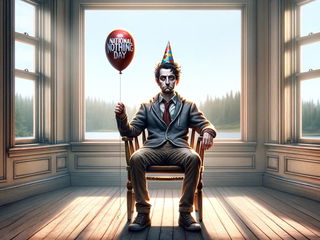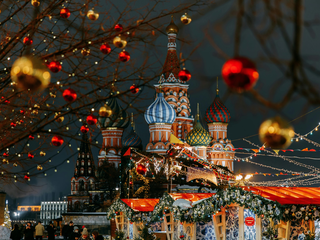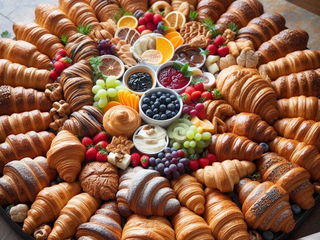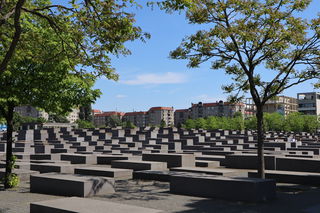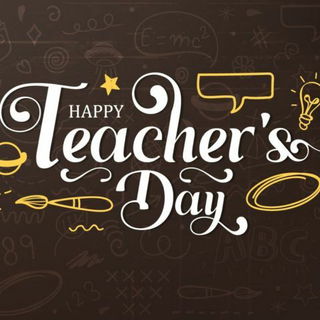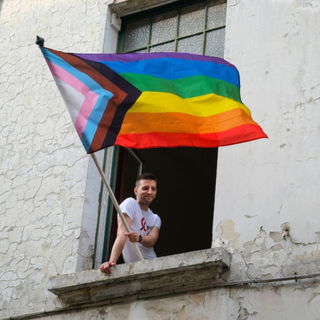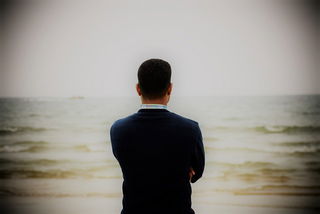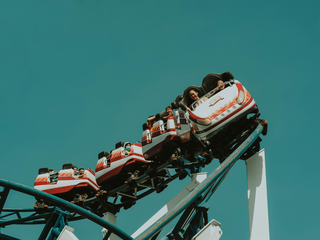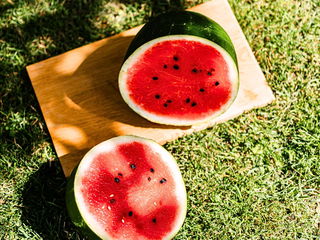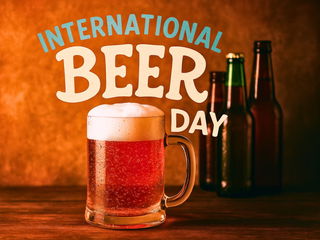- Calendar
- Calendar 2026
- July
- Malala Day
Malala Day
Malala Day is observed every year on July 12 to honor Malala Yousafzai who is the youngest Nobel Peace Prize laureate.
The determined and unstoppable advocate for girls education was born on this day and this day not only celebrates her birthday, but also her resilience, strength, and bravery of young people everywhere fighting for education and equality.
Why is Malala Day celebrated
Malala Day was officially declared by the United Nations on July 12, 2013, when Malala gave a bold and unforgettable speech at the UN headquarters just months after recovering from her attack.
The Iconic Speech
Bismillah hir rahman ir rahim. In the name of God, the most merciful, the most beneficent.
Honourable UN Secretary General Mr Ban Ki-moon, Respected President General Assembly Vuk Jeremic Honourable UN envoy for Global education Mr Gordon Brown, Respected elders and my dear brothers and sisters; Today, it is an honour for me to be speaking again after a long time. Being here with such honourable people is a great moment in my life.
I don't know where to begin my speech. I don't know what people would be expecting me to say. But first of all, thank you to God for whom we all are equal and thank you to every person who has prayed for my fast recovery and a new life. I cannot believe how much love people have shown me. I have received thousands of good wish cards and gifts from all over the world. Thank you to all of them. Thank you to the children whose innocent words encouraged me. Thank you to my elders whose prayers strengthened me.
I would like to thank my nurses, doctors and all of the staff of the hospitals in Pakistan and the UK and the UAE government who have helped me get better and recover my strength. I fully support Mr Ban Ki-moon the Secretary-General in his Global Education First Initiative and the work of the UN Special Envoy Mr Gordon Brown. And I thank them both for the leadership they continue to give. They continue to inspire all of us to action.
There are hundreds of human rights activists and social workers who are not only speaking for human rights, but who are struggling to achieve their goals of education, peace and equality. Thousands of people have been killed by the terrorists and millions have been injured. I am just one of them.
So here I stand, one girl among many.
I speak not for myself, but for all girls and boys.
I raise up my voice — not so that I can shout, but so that those without a voice can be heard.
Those who have fought for their rights:
Their right to live in peace. Their right to be treated with dignity. Their right to equality of opportunity. Their right to be educated.
Dear Friends, on the 9th of October 2012, the Taliban shot me on the left side of my forehead. They shot my friends too. They thought that the bullets would silence us. But they failed. And then, out of that silence came, thousands of voices. The terrorists thought that they would change our aims and stop our ambitions but nothing changed in my life except this: Weakness, fear and hopelessness died. Strength, power and courage was born. I am the same Malala. My ambitions are the same. My hopes are the same. My dreams are the same.
Dear sisters and brothers, I am not against anyone. Neither am I here to speak in terms of personal revenge against the Taliban or any other terrorists group. I am here to speak up for the right of education of every child. I want education for the sons and the daughters of all the extremists especially the Taliban.
I do not even hate the Talib who shot me. Even if there is a gun in my hand and he stands in front of me. I would not shoot him. This is the compassion that I have learnt from Muhammad — the prophet of mercy, Jesus Christ and Lord Buddha. This is the legacy of change that I have inherited from Martin Luther King, Nelson Mandela and Muhammad Ali Jinnah. This is the philosophy of non-violence that I have learnt from Gandhi Jee, Bacha Khan and Mother Teresa. And this is the forgiveness that I have learnt from my mother and father. This is what my soul is telling me, be peaceful and love everyone.
Dear sisters and brothers, we realise the importance of light when we see darkness. We realise the importance of our voice when we are silenced. In the same way, when we were in Swat, the north of Pakistan, we realised the importance of pens and books when we saw the guns.
The wise saying, "The pen is mightier than sword” was true. The extremists are afraid of books and pens. The power of education frightens them. They are afraid of women. The power of the voice of women frightens them. And that is why they killed 14 innocent medical students in the recent attack in Quetta. And that is why they killed many female teachers and polio workers in Khyber Pukhtoon Khwa and FATA. That is why they are blasting schools every day. Because they were and they are afraid of change, afraid of the equality that we will bring into our society.
I remember that there was a boy in our school who was asked by a journalist, "Why are the Taliban against education?” He answered very simply. By pointing to his book he said, “A Talib doesn't know what is written inside this book.” They think that God is a tiny, little conservative being who would send girls to the hell just because of going to school. The terrorists are misusing the name of Islam and Pashtun society for their own personal benefits. Pakistan is peace-loving democratic country. Pashtuns want education for their daughters and sons. And Islam is a religion of peace, humanity and brotherhood. Islam says that it is not only each child's right to get education, rather it is their duty and responsibility.
Honourable Secretary General, peace is necessary for education. In many parts of the world especially Pakistan and Afghanistan; terrorism, wars and conflicts stop children to go to their schools. We are really tired of these wars. Women and children are suffering in many parts of the world in many ways. In India, innocent and poor children are victims of child labour. Many schools have been destroyed in Nigeria. People in Afghanistan have been affected by the hurdles of extremism for decades. Young girls have to do domestic child labour and are forced to get married at early age. Poverty, ignorance, injustice, racism and the deprivation of basic rights are the main problems faced by both men and women.
Dear fellows, today I am focusing on women's rights and girls' education because they are suffering the most. There was a time when women social activists asked men to stand up for their rights. But, this time, we will do it by ourselves. I am not telling men to step away from speaking for women's rights rather I am focusing on women to be independent to fight for themselves.
Dear sisters and brothers, now it's time to speak up.
So today, we call upon the world leaders to change their strategic policies in favour of peace and prosperity.
We call upon the world leaders that all the peace deals must protect women and children's rights. A deal that goes against the dignity of women and their rights is unacceptable.
We call upon all governments to ensure free compulsory education for every child all over the world.
We call upon all governments to fight against terrorism and violence, to protect children from brutality and harm.
We call upon the developed nations to support the expansion of educational opportunities for girls in the developing world.
We call upon all communities to be tolerant — to reject prejudice based on cast, creed, sect, religion or gender. To ensure freedom and equality for women so that they can flourish. We cannot all succeed when half of us are held back.
We call upon our sisters around the world to be brave — to embrace the strength within themselves and realise their full potential.
Dear brothers and sisters, we want schools and education for every child's bright future. We will continue our journey to our destination of peace and education for everyone. No one can stop us. We will speak for our rights and we will bring change through our voice. We must believe in the power and the strength of our words. Our words can change the world.
Because we are all together, united for the cause of education. And if we want to achieve our goal, then let us empower ourselves with the weapon of knowledge and let us shield ourselves with unity and togetherness.
Dear brothers and sisters, we must not forget that millions of people are suffering from poverty, injustice and ignorance. We must not forget that millions of children are out of schools. We must not forget that our sisters and brothers are waiting for a bright peaceful future.
So let us wage a global struggle against illiteracy, poverty and terrorism and let us pick up our books and pens. They are our most powerful weapons.
One child, one teacher, one pen and one book can change the world.
Education is the only solution. Education first.
Who Is Malala Yousafzai
Malala Yousafzai is a Pakistani activist who is a global advocate for girls' right to education.
She grew up in Swat, where the Taliban tried to stop girls from going to school. At just 11 years old, she shared what life looks like under the Taliban rule in a blog she wrote for BBC Urdu.
Her voice garnered widespread attention, and she was shot in the head by a Taliban gunman while on her school bus in 2012.
This incident made her even more stubborn and after recovering in the UK, Malal co-founded the Malala Fund to support education for girls around the world.
She wrote the best-selling book I Am Malala, and in 2014, at age 17, she became the youngest person ever to receive the Nobel Peace Prize.
She’s also been recognized with many global awards, appeared in documentaries, and studied at Oxford University.
Malala is important because she turned personal tragedy into a worldwide mission for change.
Her courage, voice, and activism have inspired millions to stand up for education, equality, and human rights.
Observing Malala Day
Malala Day is more than just a day for Malala, it’s a day for everyone who believes in the power of education.
You can celebrate it by learning about her story through her book I Am Malala or by watching a documentary like He Named Me Malala.
Share what you learn with others, so more people know how one girl's courage made a big difference.
You can also help by supporting groups that fight for girls’ education. This could mean giving a donation, helping out as a volunteer, or spreading the word.
Another way to celebrate is by speaking up. Post on social media, talk to your friends, or even make a sign to show that every child deserves an education.
Use hashtags like #MalalaDay or #GirlsEducation to be part of the global conversation.
If you want to do something more hands-on, gather your friends for a book club, start a school project, or host a small event to talk about education and why it matters, especially for girls.
Malala Day is a reminder that even one voice can spark change. As Malala said, “One child, one teacher, one book, one pen can change the world.”
So let’s speak up, learn more, and stand together, not just on July 12, but every day.
Key Highlights of Malala’s Achievements
- Won the Nobel Peace Prize in 2014 at age 17, becoming the youngest-ever laureate.
- Co-founded the Malala Fund to support girls’ right to 12 years of free, safe, quality education.
- Survived a Taliban assassination attempt in 2012 after speaking out for girls' education in Pakistan.
- Published the memoir I Am Malala, which became an international bestseller.
- Graduated from Oxford University in 2020 with a degree in Philosophy, Politics, and Economics.
- Continues to advocate globally for education, women’s rights, and social justice.
- Recognized by Time magazine as one of the world’s most influential people multiple times.
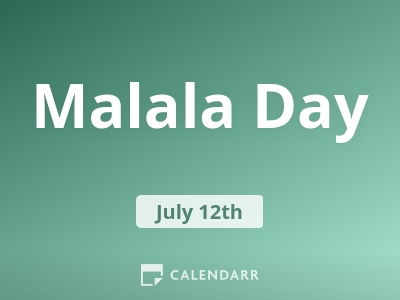
Other Celebrations
-
Feb 13 Fri
-
Apr 10 Fri
-
Apr 10 Fri
-
Apr 29 Wed
-
May 01 Fri
-
Jun 04 Thu

Malala Day - Next years
Monday, 12 July 2027
Wednesday, 12 July 2028
Thursday, 12 July 2029
